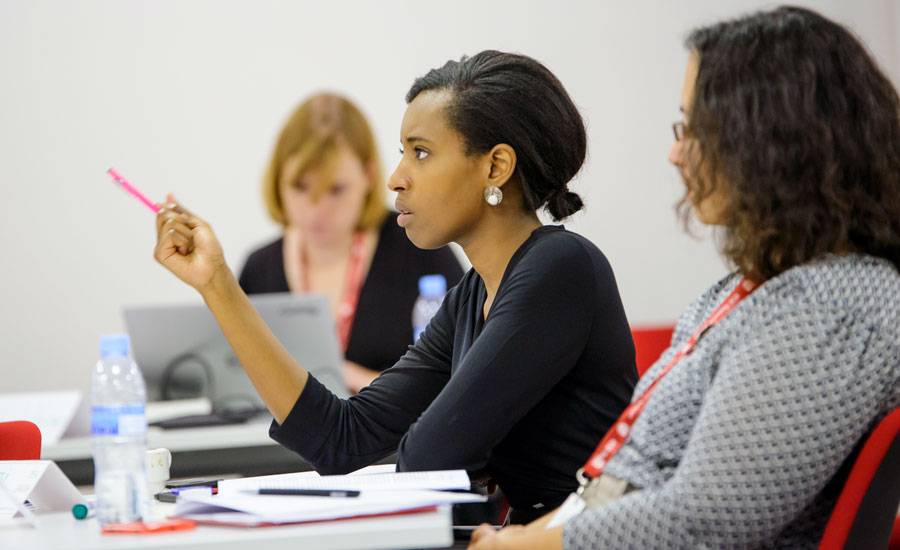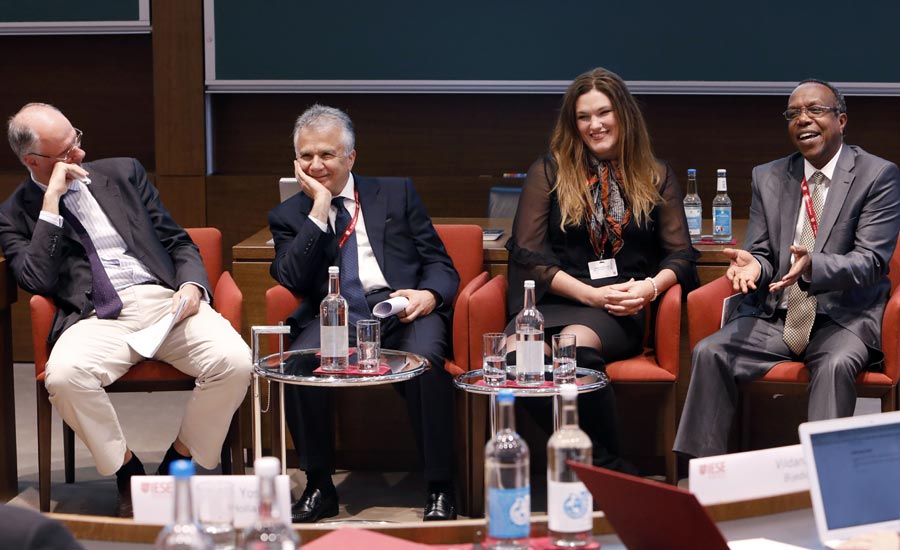Stories
Research with the Executive Agenda in Mind
IESE research tackles today's key issues in management
August 16, 2018

Research by IESE professors over the last year has looked at which countries are doing best to promote women in leadership, at frustration over inequalities in the workplace, at the future of globalized trade, and much more. Here, a selection of research highlights:
The IESE Women in Leadership (I-WIL) Index, directed by professor Nuria Chinchilla evaluates the state of women’s leadership in 34 countries and offers a series of recommendations to break down the barriers blocking its development.
Another pertinent study on gender issues by professor Mireia Las Heras finds that almost nine in 10 Spaniards interviewed complain that they work in environments that hinder equal access to opportunities.
And there are many other relevant topics that IESE’s faculty has tackled this past year in order to help guide today’s leaders. Research output for the 2017-2018 academic year includes 12 books, 29 studies, 46 peer-reviewed academic articles, 67 business cases, 21 technical notes and other materials.
Globalization or Protectionism?
The future of international trade is a widespread concern addressed by professor Pankaj Ghemawat in his book The New Global Road Map. Based on his research, Ghemawat offers enduring strategies for global growth and for handling the current anger directed at globalization.
The current climate of uncertainty also affects how companies are collaborating and joining forces with one another. A study by professor Africa Ariño analyzes how much strategic alliances should evolve to adapt to changes in circumstances and partners’ actions. Meanwhile, professor Stefano Sacchetto has developed a model that evaluates the effects of M&A activity on productivity, the economy and entrepreneurship.
Obviously, institutional investors have not been immune to new and deepening geopolitical tensions, as shown in the latest Venture Capital and Private Equity Country Attractiveness Index, led by professor Heinrich Liechtenstein, which includes a post-Brexit scenario analysis.
Unstoppable Advances in Technology
Digital transformation is another area receiving significant attention from researchers. For starters, if your organization doesn’t have a Chief Digital Officer (CDO) now, it probably will soon, as professor Sanja Tumbas predicts in an article analyzing the role of these institutional entrepreneurs, whose functions are still evolving.
And how should business leaders adapt to the growing role of artificial intelligence (AI)? That is the great question addressed by experts taking part in the fifth edition of The Future of Leadership Development Conference, one of the 24 academic events organized by IESE this past year.
The Human Factor
The rise of AI should not eclipse the fact that the success of companies comes from people above all else. And so it is important to understand the potential and the needs of millennials, the generation that will soon make up the majority of the workforce. As professor Guido Stein warns in his book on leaders and millennials, the video-game generation is ushering in some significant changes at work.
It’s also vital to remember the values and ethos of work, as highlighted by the 20th International Symposium on Ethics, Business and Society, which addressed the meaning of work in the Fourth Industrial Revolution and a look at the changes ahead.
In addition, the latest research on how human behavior effects decision-making should be useful for management. For starters, a study by professor Kate Barasz shows that we don’t like to leave things unfinished, so grouping tasks can help motivate people and boost productivity (and this same mechanism could be applied to marketing products).
Other research, in this case by professor Johannes Müller-Trede, warns how the way numbers are presented can condition our decisions.
And professor Sebastian Hafenbrädl uncovers two things that can enable us to overcome our cognitive bias (a cold-hot empathy gap) in order to improve outcomes in competitive escalations, such as bidding wars.
More Research via IESE Insight
This is but a fraction of the research activity carried out by IESE faculty over the 2017-2018 academic year and continuing into the next year. For a sense of what’s next, keep in mind that there are currently about 60 active projects receiving public funding (funding that was secured with help from the Project Unit) as well as many privately-funded investigations.
For more relevant research, look to IESE Insight‘s knowledge portal, where you can find articles, infographics, podcasts and videos on the latest from IESE professors and its practical applications to today’s fast-changing business world.


